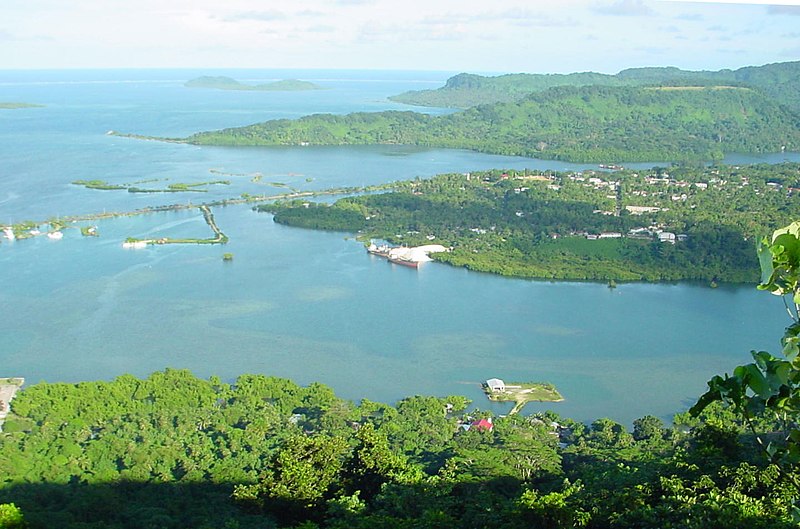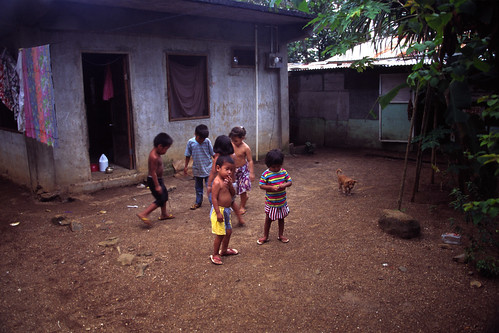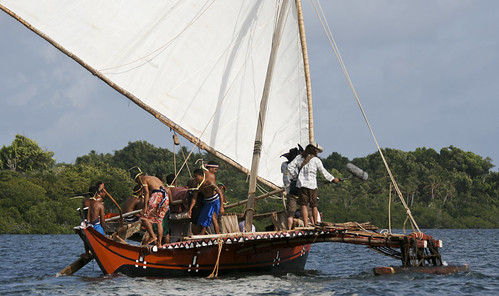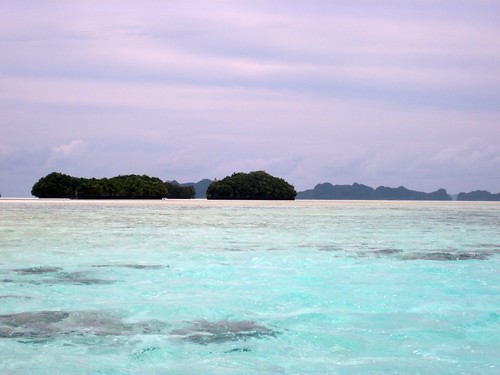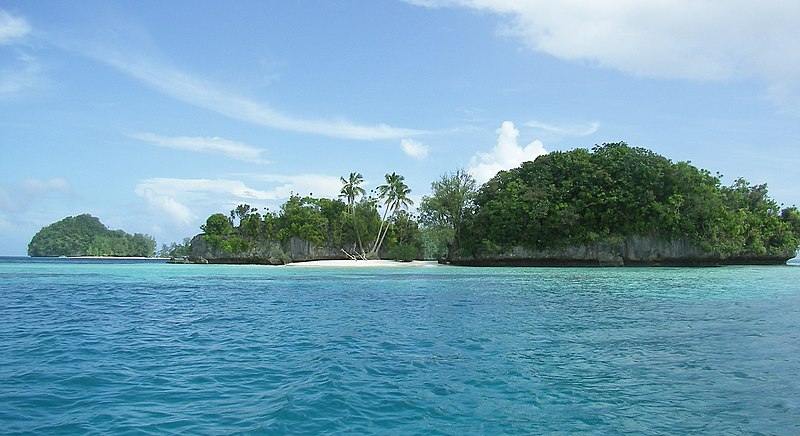Difference between revisions of "Adopting from Micronesia, Federated States of"
m (Sstubbert moved page Micronesia, Federated States of to Adopting from Micronesia, Federated States of) |
|||
| Line 1: | Line 1: | ||
| − | {{#eimage:https://www.cia.gov/library/publications/the-world-factbook/graphics/flags/large/fm-lgflag.gif|410x579px|thumb|'''The official flag | + | {{#eimage:https://www.cia.gov/library/publications/the-world-factbook/graphics/flags/large/fm-lgflag.gif|410x579px|thumb|'''The official flag.'''<BR/>Source: cia.gov.}} |
| − | {{#eimage:https://www.cia.gov/library/publications/the-world-factbook/graphics/maps/fm-map.gif|410x579px|thumb|'''Map | + | {{#eimage:https://www.cia.gov/library/publications/the-world-factbook/graphics/maps/fm-map.gif|410x579px|thumb|'''Map.'''<BR/>Source: cia.gov.}} |
| − | {{#eimage:http://upload.wikimedia.org/wikipedia/commons/thumb/4/4d/Koloniasokehs.jpg/800px-Koloniasokehs.jpg|410x579px|thumb|''' Kolonia Town looking down from Sokehs Ridge, Phonpei | + | {{#eimage:http://upload.wikimedia.org/wikipedia/commons/thumb/4/4d/Koloniasokehs.jpg/800px-Koloniasokehs.jpg|410x579px|thumb|''' Kolonia Town looking down from Sokehs Ridge, Phonpei.'''<BR/>Source: Wikipedia.org.}} |
| − | {{#eimage:https://farm1.staticflickr.com/100/304272006_722fbd1d6c.jpg|410x579px|thumb|'''Village children | + | {{#eimage:https://farm1.staticflickr.com/100/304272006_722fbd1d6c.jpg|410x579px|thumb|'''Village children.'''<BR/>Source: flickr.com.}} |
| − | {{#eimage:http://upload.wikimedia.org/wikipedia/commons/thumb/c/cc/Aerial_view_of_Nauru.jpg/800px-Aerial_view_of_Nauru.jpg|410x579px|thumb|'''Aerial view of [[Nauru]] | + | {{#eimage:http://upload.wikimedia.org/wikipedia/commons/thumb/c/cc/Aerial_view_of_Nauru.jpg/800px-Aerial_view_of_Nauru.jpg|410x579px|thumb|'''Aerial view of [[Nauru]].'''<BR/>Source: Wikipedia.org.}} |
| − | {{#eimage:https://farm4.staticflickr.com/3537/3497917025_8b63e37b27.jpg|410x579px|thumb|''' | + | {{#eimage:https://farm4.staticflickr.com/3537/3497917025_8b63e37b27.jpg|410x579px|thumb|''''''<BR/>Source: flickr.com.}} |
| − | {{#eimage:http://upload.wikimedia.org/wikipedia/commons/thumb/f/f6/Coat_of_arms_of_the_Federated_States_of_Micronesia.svg/579px-Coat_of_arms_of_the_Federated_States_of_Micronesia.svg.png|410x579px|thumb|'''The official coat of arms | + | {{#eimage:http://upload.wikimedia.org/wikipedia/commons/thumb/f/f6/Coat_of_arms_of_the_Federated_States_of_Micronesia.svg/579px-Coat_of_arms_of_the_Federated_States_of_Micronesia.svg.png|410x579px|thumb|'''The official coat of arms.'''<BR/>Source: Wikipedia.org.}} |
| − | {{#eimage:https://farm7.staticflickr.com/6209/6052754554_98a29d1b21.jpg|410x579px|thumb|'''[[Palau]], Koror | + | {{#eimage:https://farm7.staticflickr.com/6209/6052754554_98a29d1b21.jpg|410x579px|thumb|'''[[Palau]], Koror.'''<BR/>Source: flickr.com.}} |
| − | {{#eimage:https://farm4.staticflickr.com/3180/3082805449_0efa6f7eb5.jpg|410x579px|thumb|'''Amin Village, Yap | + | {{#eimage:https://farm4.staticflickr.com/3180/3082805449_0efa6f7eb5.jpg|410x579px|thumb|'''Amin Village, Yap.'''<BR/>Source: flickr.com.}} |
| − | {{#eimage:http://upload.wikimedia.org/wikipedia/commons/thumb/1/1e/Palau-rock-islands20071222.jpg/800px-Palau-rock-islands20071222.jpg|410x579px|thumb|'''[[Palau]] Rock islands | + | {{#eimage:http://upload.wikimedia.org/wikipedia/commons/thumb/1/1e/Palau-rock-islands20071222.jpg/800px-Palau-rock-islands20071222.jpg|410x579px|thumb|'''[[Palau]] Rock islands.'''<BR/>Source: Wikipedia.org.}} |
| − | |||
| − | + | '''Notice: As of July 14, 2014, all individuals and agencies facilitating [[international]] adoptions must be in compliance with the Intercountry [[Universal Accreditation Act]].''' | |
| − | |||
| + | =About The Federated States of Micronesia= | ||
| − | + | The Caroline Islands are a widely scattered archipelago in the western Pacific Ocean; they became part of a UN Trust Territory under US administration following World War II. The eastern four island groups [[adopted]] a constitution in 1979 and chose to become the Federated States of Micronesia. To learn more please read [[About the Federated States of Micronesia]]. | |
| + | =Hague Convention Information= | ||
| − | + | The Federated States of Micronesia, is not party to the Hague Convention on Protection of Children and Co-operation in Respect of Intercountry [[Adoption]] ([http://adoption.state.gov/hague_convention/overview.php the Hague Adoption Convention]). Intercountry adoptions of children from non-Hague countries are processed in accordance with [http://www.ecfr.gov/cgi-bin/text-idx?c=ecfr&rgn=div5&view=text&node=8:1.0.1.2.8&idno=8#8:1.0.1.2.8.1.1.3 8 Code of Federal Regulations, Section 204.3] as it relates to orphans as defined under the [http://www.uscis.gov/iframe/ilink/docView/SLB/HTML/SLB/0-0-0-1/0-0-0-29/0-0-0-101/0-0-0-434.html Immigration and Nationality Act, Section 101(b)(1)(F)]. To learn more please read about [[Federated States of Micronesia and the Hague Convention]]. | |
| − | |||
| − | |||
| − | |||
| − | |||
| − | |||
| − | |||
| − | |||
| − | |||
| − | |||
| − | |||
| − | |||
=Who Can Adopt= | =Who Can Adopt= | ||
| − | In addition to U.S. immigration requirements, you must also meet | + | In addition to U.S. immigration requirements, you must also meet multiple requirements in order to [[adopt]] a child from the Federated States of Micronesia. To learn more please read about [[Who Can Adopt from the Federated States of Micronesia]]. |
| − | + | ||
| − | + | ||
| − | + | ||
| − | + | ||
| − | + | ||
| − | + | ||
| − | + | ||
| − | + | ||
| − | + | ||
| − | + | ||
| − | + | ||
| − | + | ||
| − | + | ||
| − | + | ||
| − | + | ||
| − | + | ||
| − | + | ||
| − | + | ||
| − | + | ||
| − | + | ||
=Who Can Be Adopted= | =Who Can Be Adopted= | ||
| Line 95: | Line 64: | ||
# Bring your child home | # Bring your child home | ||
| + | To learn more about this process please read [[How to Adopt from the Federated States of Micronesia]]. | ||
| − | |||
| − | |||
| − | |||
| − | |||
| − | |||
| − | |||
| − | |||
| − | |||
| − | |||
| − | |||
| − | |||
| − | |||
| − | |||
| − | |||
| − | |||
| − | |||
| − | |||
| − | |||
| − | |||
| − | |||
| − | |||
| − | |||
| − | |||
| − | |||
| − | |||
| − | |||
| − | |||
| − | |||
| − | |||
| − | |||
| − | |||
| − | |||
| − | |||
| − | |||
| − | |||
| − | |||
| − | |||
| − | |||
| − | |||
| − | |||
| − | |||
| − | |||
| − | |||
| − | |||
| − | |||
| − | |||
| − | |||
| − | |||
| − | |||
| − | |||
| − | |||
| − | |||
| − | |||
| − | |||
| − | |||
| − | |||
| − | |||
| − | |||
| − | |||
| − | |||
| − | |||
| − | |||
| − | |||
| − | |||
| − | |||
| − | |||
| − | |||
| − | |||
| − | |||
| − | |||
| − | |||
| − | |||
| − | |||
| − | |||
| − | |||
| − | |||
| − | |||
| − | |||
| − | |||
| − | |||
| − | |||
=Traveling Abroad= | =Traveling Abroad= | ||
| Line 183: | Line 72: | ||
'''Applying for Your U.S. Passport''' | '''Applying for Your U.S. Passport''' | ||
| − | A valid U.S. passport is required to enter and leave The Federated States of Micronesia (FSM). Only the U.S. Department of State has the authority to grant, issue, or verify U.S. passports. Getting or renewing a passport is easy. | + | A valid U.S. passport is required to enter and leave The Federated States of Micronesia (FSM). Only the U.S. Department of State has the authority to grant, issue, or verify U.S. passports. Getting or renewing a passport is easy. To learn more please read about [[Traveling Abroad in the Federated States of Micronesia]]. |
| − | + | ||
| − | + | ||
| − | + | ||
| − | + | ||
| − | + | ||
| − | + | ||
| − | + | ||
| − | + | ||
| − | + | ||
| − | + | ||
| − | + | ||
| − | + | ||
| − | + | ||
| − | |||
=After Adoption= | =After Adoption= | ||
| − | Many [[Adoptive Parents|adoptive parents]] find it important to find support after the [[adoption]]. There are many public and private nonprofit post-[[adoption]] services available for children and their families. There are also numerous adoptive family support groups and [[adoptee]] organizations active in the United States that provide a network of options for adoptees who seek out other adoptees from the same country of origin. Take advantage of all the resources available to your family— whether it is another adoptive family, a support group, an advocacy organization, or your religious or community services. | + | Many [[Adoptive Parents|adoptive parents]] find it important to find support after the [[adoption]]. There are many public and private nonprofit post-[[adoption]] services available for children and their families. There are also numerous adoptive family support groups and [[adoptee]] [[organizations]] active in the United States that provide a network of options for adoptees who seek out other adoptees from the same country of origin. Take advantage of all the resources available to your family— whether it is another adoptive family, a support group, an advocacy organization, or your religious or community services. |
| Line 280: | Line 155: | ||
'''Consulate of the Federated States of Micronesia''' | '''Consulate of the Federated States of Micronesia''' | ||
| − | International Trade Center | + | [[International]] Trade Center |
590 South Marine Drive | 590 South Marine Drive | ||
Tamuning, Guam 96911 | Tamuning, Guam 96911 | ||
Revision as of 17:44, 19 February 2015
Notice: As of July 14, 2014, all individuals and agencies facilitating international adoptions must be in compliance with the Intercountry Universal Accreditation Act.
Contents
About The Federated States of Micronesia
The Caroline Islands are a widely scattered archipelago in the western Pacific Ocean; they became part of a UN Trust Territory under US administration following World War II. The eastern four island groups adopted a constitution in 1979 and chose to become the Federated States of Micronesia. To learn more please read About the Federated States of Micronesia.
Hague Convention Information
The Federated States of Micronesia, is not party to the Hague Convention on Protection of Children and Co-operation in Respect of Intercountry Adoption (the Hague Adoption Convention). Intercountry adoptions of children from non-Hague countries are processed in accordance with 8 Code of Federal Regulations, Section 204.3 as it relates to orphans as defined under the Immigration and Nationality Act, Section 101(b)(1)(F). To learn more please read about Federated States of Micronesia and the Hague Convention.
Who Can Adopt
In addition to U.S. immigration requirements, you must also meet multiple requirements in order to adopt a child from the Federated States of Micronesia. To learn more please read about Who Can Adopt from the Federated States of Micronesia.
Who Can Be Adopted
In addition to U.S. immigration requirements, FSM does not have specific requirements that a child must meet in order to be eligible for adoption.
Caution: Prospective adoptive parents should be aware that not all children in orphanages or children’s homes are adoptable. In many countries, birth parents place their child(ren) temporarily in an orphanage or children’s home due to financial or other hardship, with the intention of returning for the child when they are able to do so. In such cases, the birth parent(s) have rarely relinquished their parental rights or consented to their child(ren)’s adoption.
How to Adopt
Adoption Authority
FSM Adoption Authority
There is no central (federal) FSM government office responsible for adoptions. Each state (Yap, Kosrae, Pohnpei and Chuuk) has its own court system in which adoptions take place, and prospective adoptive parents should contact the appropriate court regarding a possible adoption in that jurisdiction.
The Process
The process for adopting a child from FSM generally includes the following steps:
- Choose an adoption service provider
- Apply to be found eligible to adopt
- Be matched with a child
- Adopt the child in FSM
- Apply for the child to be found eligible for orphan status
- Bring your child home
To learn more about this process please read How to Adopt from the Federated States of Micronesia.
Traveling Abroad
Applying for Your U.S. Passport
A valid U.S. passport is required to enter and leave The Federated States of Micronesia (FSM). Only the U.S. Department of State has the authority to grant, issue, or verify U.S. passports. Getting or renewing a passport is easy. To learn more please read about Traveling Abroad in the Federated States of Micronesia.
After Adoption
Many adoptive parents find it important to find support after the adoption. There are many public and private nonprofit post-adoption services available for children and their families. There are also numerous adoptive family support groups and adoptee organizations active in the United States that provide a network of options for adoptees who seek out other adoptees from the same country of origin. Take advantage of all the resources available to your family— whether it is another adoptive family, a support group, an advocacy organization, or your religious or community services.
Here are some places to start your support group search:
Child Welfare Information Gateway
North American Council on Adoptable Children
Adoption Services Support Groups for Adopting Persons
NOTE: Inclusion of non-U.S. Government links does not imply endorsement of contents.
Contact Information
U.S. Embassy in the Federated States of Micronesia
U.S. Embassy Kolonia P.O. Box 1286 Pohnpei, FM 96941 Tel: (691) 320-2187 Fax: (691) 320-2186 Email: USEmbassy@mail.fm
U.S. Embassy in the Philippines
(The U.S. Embassy in Kolonia, Micronesia, does not process immigrant visa cases for adopted children. All such cases are handled at the U.S. Embassy in Manila, the Philippines. See the contact information below.)
U.S. Embassy Manila PSC 500 APO AP 96515-1000 Telephone: +63-2-528-6300, ext 2324 E-mail: MNLIVCONG@state.gov
FSM Adoption Authority: Local Courts
The Honorable Cyprian Manmaw Chief Justice, Yap Supreme Court P.O. Box 435 Colonia, Yap FM 96943
The Honorable Camillo Noket
Chief Justice
Chuuk Supreme Court
P.O. Box J
Weno, Chuuk FM 96942
The Honorable Aliksa B. Aliksa
Chief Justice, Kosrae Supreme Court
P.O. Box 610 Tofol, Kosrae FM 96944
The Honorable Judah C. Johnny
Chief Justice, Pohnpei Supreme Court
P.O. Box 1449
Kolonia, Pohnpei FM 96941
Embassy of the Federated States of Micronesia
1725 N Street NW Washington, DC 20036Tel: Tel: 202-223-4383 Email: fsm@fsmembassy.org
The FSM also has consulates in: Guam and Hawaii
Consulate of the Federated States of Micronesia
International Trade Center 590 South Marine Drive Tamuning, Guam 96911 Telephone: 671-646-9154/55/56 Email address: fsmcongm@kuentos.guam.net
Consulate of the Federated States of Micronesia
3049 Ualena St, Suite 908 Honolulu HI 96819 Telephone: 808-836-4775 Email address: fsmcghnl@aol.com
Office of Children’s Issues
U.S. Department of State CA/OCS/CI SA-17, 9th Floor Washington, DC 20522-1709 Tel: 1-888-407-4747 Email: AskCI@state.gov Internet: U.S. Department of State
U.S. Citizenship and Immigration Services (USCIS)
For questions about immigration procedures: National Customer Service Center (NCSC) Tel: 1-800-375-5283 (TTY 1-800-767-1833) Internet: USCIS
For questions about filing a Form I-600A or I-600 petition:
National Benefits Center
Tel: 1-877-424-8374 (toll free); 1-816-251-2770 (local)
Email: NBC.Adoptions@DHS.gov
SOURCE
Intercountry Adoption, Bureau of Consular Affairs. U.S. Department of State Country Information[1]


